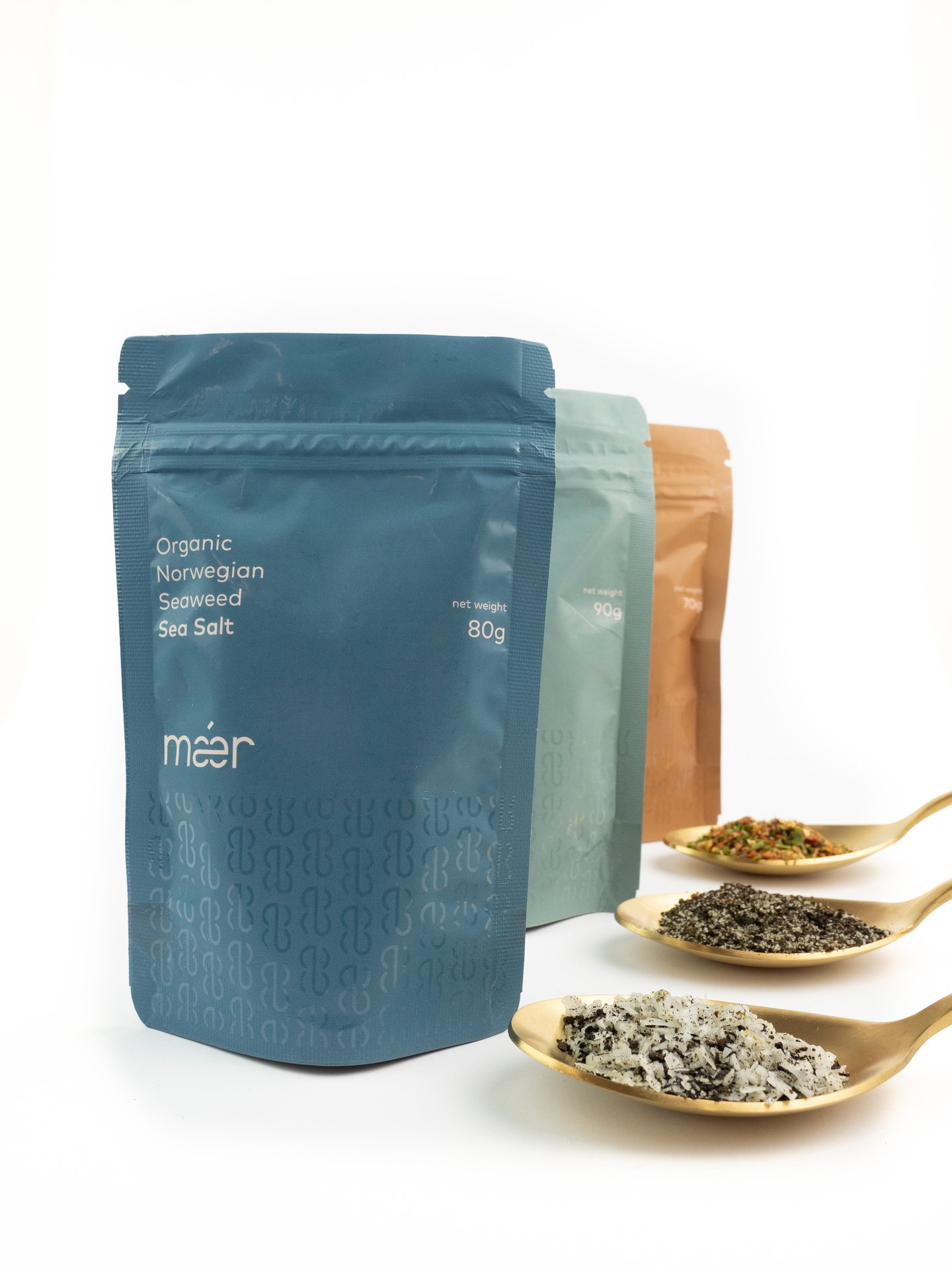-
SEARCH
Type your search in the field above

Production of Atlantic salmon and Rainbow trout is considered more sustainable compared to production of beef, pork, sheep and other animal based proteins. The reason is that animal based proteins are more discharge intensive because of the methane gas they produce.
To reduce our overall emissions and trap excess nutrients such as Nitrogen, phosphor and carbon from our salmon and trout production, Lerøy in partnership with NGO Belona Holding AS, started a joint venture, Ocean Forest, to produce macro algae, blue mussels and polychaeta near several of our farming sites.
In addition to trap CO2 and absorb excess nutrients from the farming operations, especially the blue mussels, but also the sugar kelp are good sources of sustainable proteins and other health benefitting nutrients.
Ocean Forest has conducted two studies of fermented kelp in feed for ruminants in collaboration with the University of Copenhagen. The first study is an in vitro study, in which the methane gas production in the stomach of dairy cows is added to various fermented kelp products. The measurements showed up to a 45% reduction in methane gas production using fermented kelp.
The second experiment was performed on calves. The calves could choose freely between 4 different diets with 0 to 5% fermented kelp added. The feed with the highest content of fermented kelp was clearly most sought after by the animals.
The studies in Denmark have shown that fermented kelp can be an important new ingredient in feed to land animals to reduced their emissions of methane gas by 30-40 % (Hansen et al, In prep) when adding Sugar kelp to their diet. Ocean Forest sold most of the production of sugar kelp in 2021 as a new ingredient for animal feed.
Using blue mussel meal instead of fish meal has also shown to be an excellent replacement as shown in the EU funded project Holofood. We therefore started an inhouse R&D project with one of the major Feed companies to see if blue mussel meal is viable commercially.
We also include 1,5 – 2 % insect flour in all our freshwater feed as a replacement for fish meal. From a nutritional point of view its considered a high quality and sustainable protein source, but its highly expensive to use.
The growth potential of this business venture are far greater than what we produce today, and what we will be able to produce in a long while. Today we have blue mussel and sugar kelp production at 7 locations (5 sugar kelp locations and 2 blue mussel locations). We produced 230 tons of sugar kelp (2,3 tons protein) in 2022, and estimate a significant increase in production volume in 2023. We also produced 3 tons of Blue Mussel protein.
Our goal is to one day have the knowledge, technology and the Customer base to extend this production setup to a major part of our farming sites, producing more sustainable marine and plant proteins.
We are also committed to continue educating the public about the benefits of a diet consisting of marine proteins, Omega 3 and 6 fatty acids and other health benefiting nutrients. Doing so, we are confident that the human consumption of these sustainable proteins will increase in the future.
In 2021 Lerøy started a R&D project lead by our product development team to look into the possibility to diversify our protein assortment, expanding into plant based protein products. Our goal with the project was to find a partner which could help us find suitable replacements for fish proteins in an assortment of “fish like products” such as Vegan Maki with salmon and shrimp, Vegan Salmon burger, Key west Crab cake and more.
Consumer interest in plant based fish alternatives is growing and is poised for a rapid rise like other alternative protein products. It is being driven by the same macro trends, but playing out in ways specifically related to the fish and shellfish industry. The Vegan market is expanding in tact with the growing demand for sustainable food, and Lerøy plan to be apart of this trend offering a wide arrangement of product to satisfy our customers need for fish products, and plant based fish alternative products in the future.
The project in itself is still ongoing in 2022 and therefore not ready for publication. Our trails and tests with our partner in 2022 did not produce the results we expected regarding texture, taste and appearance. We started therefor to test other possible sources of raw materials and recipes within the vegetable assortment. The development and testing will continue in 2023. The main goal is to develop, produce and launch in the market a vegan burger based on vegetable protein using different types of vegetable puree, dried sugar kelp, natural aromas, starch and more. In addition we are developing other different product ranges utilizing vegetable raw materials, and sugar kelp from our own production in Ocean Harvest. Sugar kelp pesto and sugar kelp salads are some of the products in this range which is being tested internally and with external testing panels.
The largest challenge we face at this point is to find a plant-based protein which can simulate the Atlantic salmon texture giving the right resistance in the mouth, creamy sensation on the tongue or the elastic bite when chewing.
In addition, appearance and taste need to be perfect before products from this range will be ready for market. We continue this project also in 2023 and have ambitions to have plant-based protein products ready for market during 2024.
